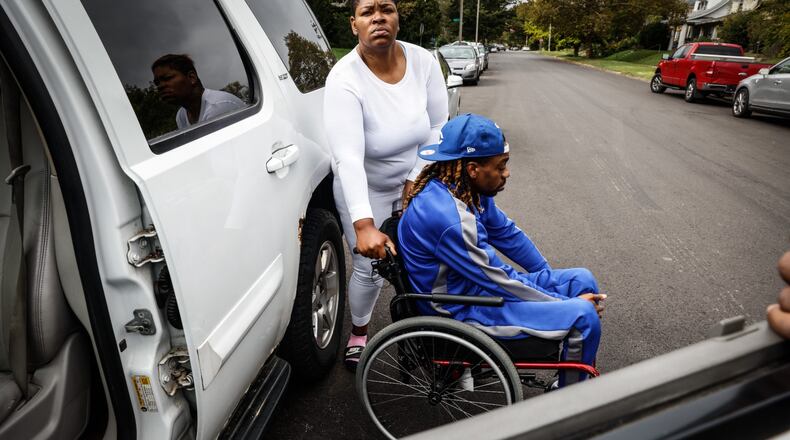Dayton leaders must listen to community demands and transform Dayton’s public safety system to support racial and disability justice. The problems are not new and Mr. Owensby’s experience is disturbingly common. Following the global protests in 2020, Disability Rights Ohio (DRO) issued Policing and Racial Injustice: A Disability Rights Perspective, a public report illustrating the ways in which police use of force disproportionately impacts people with disabilities. The Ohio Chapter of the National Association of Social Workers (NASW Ohio) too has released multiple statements calling for health-centered, anti-racist transformations in public safety.
DRO’s public report contains a sample of names of disabled people of color killed by police in routine enforcement. We encourage everyone to know these stories. Like Daniel Harris, who was deaf, and who was killed by police exiting his vehicle outside his home after officers were attempting to pull him over for speeding. And Dayton’s own Jack Runser, who is deaf, mute and has cerebral palsy and who was unjustly arrested and injured just last year when police officers failed to recognize his disabilities and profiled him for his socioeconomic status.
Because we use police for traffic enforcement, what should be a mundane, administrative transaction can escalate to violence, arrest, or incarceration, and produce other harmful outcomes, particularly for Black and disabled people. This can snowball into loss of one’s job or housing or other basic life necessities, creating intergenerational and widespread community trauma, none of which make the public safer. We often talk of the importance of de-escalation training for police officers, when we need to talk about how we prevent police involvement whenever possible because police continue to escalate routine stops and cause harm.
The status quo is not an option. Communities around the country have been hosting important conversations about public safety and piloting alternative response models that incorporate other disciplines like social work, paramedicine and peer support into first response (for example, a social worker responding to reports of unhoused people loitering, or a paramedic responding to an overdose situation). These reimaginings of public safety are critical. It is time to radically rethink the connection between policing and public safety. We need to fund systems that support survival and healing. We need to reconsider the enforcement of “crime” that does not involve harm (for instance, traffic violations). And of course, investing in vital housing, mental health, substance abuse, and homelessness programs goes a long way toward making people and communities safer and healthier.
These are the types of conversations we should be having if we are serious about ending police violence in America. Dayton leaders must listen to those directly impacted on reconciliation, accountability and how to prevent this from happening again. That includes Mr. Owensby, his family, other victims of police violence, and the broader community who have been fighting for racial and disability justice for years.
Until a major shift happens in how we prevent police violence in America, it is only a matter of time before the next traffic stop by Dayton Police adds a new name to the growing list of tragic hashtags.
Ryan Ivory is a licensed social worker, a board member for NASW Ohio, and active with the Montgomery County Jail Coalition.
Joel R. Pruce is associate professor of human rights studies at the University of Dayton and also active with the Montgomery County Jail Coalition.
Kevin Truitt is the Legal Advocacy Director at Disability Rights Ohio.
About the Author



